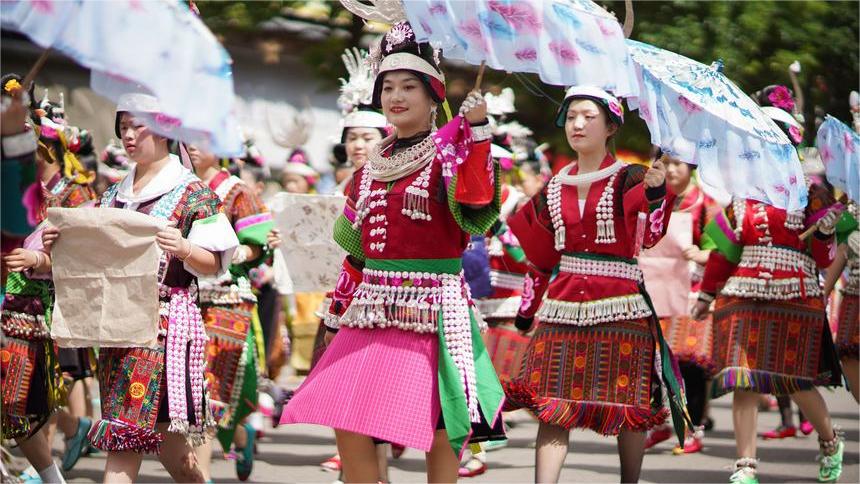Manufacturing province breaks career glass-ceiling for workers
HANGZHOU, July 29 (Xinhua) -- At 36, Chen Xiaobing was promoted to "special-level technician," making him the "professor" in his factory's and among the country's bench workers.
Chen, a seasoned worker in the city of Taizhou, east China's Zhejiang Province, has garnered several new titles this year. He is also a "high-caliber skilled personnel," which entitles him to a government subsidy of 1 million yuan (about 140,000 U.S. dollars) for house purchase.
"I'd never imagined that a factory worker like me could rise to such a high status," said Chen, who graduated from a vocational school and started working at the age of 19 to help his parents support the family.
Chen's success story is accredited to an ongoing reform in Zhejiang that aims to raise skilled workers' income levels and social status, a key measure in the province's "common prosperity" drive.
In 2022, Zhejiang pioneered a new professional title system, which adds "special-level" and "chief-level" for skilled workers. Previously, the highest title available for them is "senior technician," which largely corresponds to an associate professor in the academic world.
Extra titles create more room for promotion and pay rise. In some companies in Zhejiang, a chief technician can now enjoy the same paycheck as a senior executive.
The professional title reform, along with a slew of measures to boost skilled workers' incomes, is of particular significance to Zhejiang, a province built on light manufacturing and home to 21.5 million industrial workers, including more than 10 million skilled workers, out of a total population of 66 million.
After Zhejiang was named a demonstration zone for achieving common prosperity in 2021, turning its large legion of skilled workers into middle-income earners has figured prominently in its current agenda.
"Common prosperity for all is a key feature of the Chinese modernization, and one important indicator is whether there is a large size or high proportion of middle-income earners," said Lai Desheng, a professor with the National Academy of Governance.
In Taizhou where Chen works, there are 1.28 million skilled workers, making up 20 percent of the city's total population. The industrial city has rolled out a slew of policies to enhance skill training, encourage pay rise and promote a friendly company culture to skilled workers.
Boosted by the supportive policies, the average income of skilled workers in the city rose by 7.8 percent in 2022 alone.
Skilled workers in the city can also qualify for a package of benefits, including cash bonuses, free entrance to scenic spots, and low-interest "common prosperity" loans.
Experts said by elevating workers' income and status, China is moving toward its version of "high skills society," which is taking shape in Western countries after decades of economic development.
"In comparison, the construction of a 'high skills society' here is accelerated by a government-led initiative and guided by China's common prosperity goal," said Lyu Penghong, a senior engineer at Zhejiang Development and Planning Institute.
Moreover, the worker-friendly policies are also expected to alleviate the shortage of highly skilled workers that China's manufacturing sector has grappled with amid its upgrading toward a high-quality mode.
"China's economic growth centers around the real economy and needs many skilled personnel. Keeping people in skilled jobs also helps this country with a huge population ease employment pressures," Lyu said.
In Taizhou, the favorable policies have ignited a passion for skill training. A training session on eyeglass assembling initiated by the local government is always teeming with young workers eager to improve their skills.
"Young workers here all share a common wish, that is to learn skills, improve efficiency and earn more," said Chen Cong, a 22-year-old eyeglass assembly worker.
Photos
Related Stories
- Village in E China makes efforts to attract young talents to start businesses
- Rainbow clouds 'glow up' Zhejiang sky
- Ancient stone bridges under well protection in east China's Zhejiang
- Feature: How a rural town in east China strikes a global violin chord
- Exploring glory of 5,000-year Chinese civilization at Liangzhu site
Copyright © 2024 People's Daily Online. All Rights Reserved.









